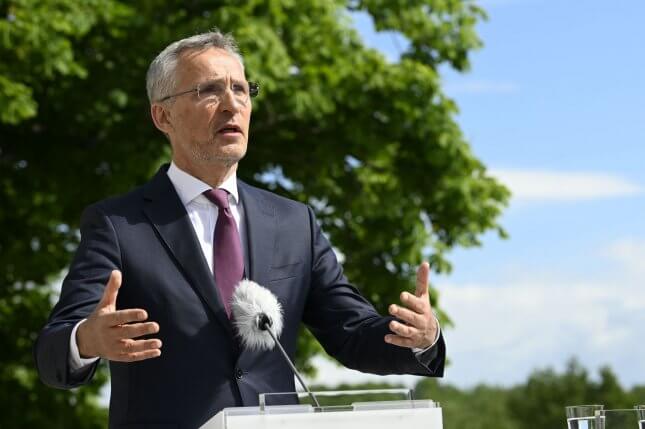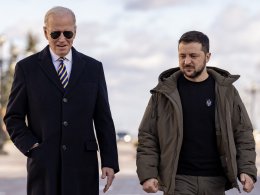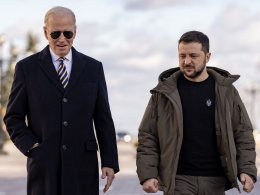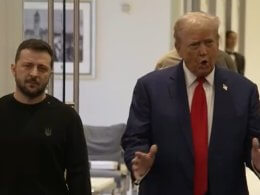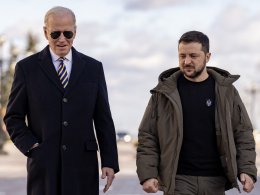In the largest military buildup since the Cold War, NATO plans to boost its high-readiness forces to 300,000 in response to Russia's war in Ukraine.
NATO Secretary-General Jens Stoltenberg made the announcement Monday, one day before U.S. President Joe Biden heads to a NATO summit in Madrid.
Biden, who was in Germany with other leaders of the Group of 7, will join other NATO leaders Tuesday through Thursday to focus on the war in Ukraine and to decide on the alliance's most important document, the Strategic Concept. The text is updated every decade to guide the strategic future of the 30-member alliance.
The latest version "will make clear that allies consider Russia as the most significant and direct threat to our security," Stoltenberg said at a news conference.
The NATO summit will be "transformative, with many important decisions, including on a new strategic concept for a new security reality, a fundamental shift in NATO's deterrence and defense, and support to Ukraine now and for the future," Stoltenberg said Monday.
The NATO chief also announced plans to shore up NATO's eastern flank nearer Russia by boosting NATO's quick-response forces by 650%. The force would grow from 40,000 to 300,000 as part of the "biggest overhaul of our collective defense and deterrence since the Cold War."
"At the summit, we will strengthen our forward defenses. We will enhance our battle groups in the eastern part of the alliance up to brigade levels," Stoltenberg said. "These troops will exercise together with home defense forces, and they will become familiar with local terrain facilities...so that they can respond smoothly and swiftly to any emergency."
Last week, Stoltenberg and British Prime Minister Boris Johnson warned Russia's war in Ukraine could last several years.
Western nations "must not let up in supporting Ukraine," Stoltenberg told German newspaper Bild am Sonntag -- "even if the costs are high, not only for military support but also because of rising energy and food prices."
This week's NATO summit could also produce a resolution to Sweden and Finland's applications to join the alliance, after Turkey blocked the countries' membership bids over terrorism concerns.
Stoltenberg said NATO is working "hard and actively" to admit Sweden and Finland "as soon as possible."





